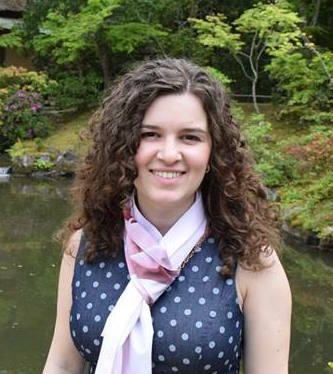Meet the Editor: Jamilla Akhund-Zade
Have you ever wondered about the scientists behind JEI's editorial and review process? We recently spoke with Editor-in-Chief Jamilla Akhund-Zade to learn more about her experiences with JEI, as well as her own scientific research at Harvard University.

Jamilla is a 4th year PhD student in Harvard University's Molecules, Cells, and Organisms Graduate Program, performing her thesis research in the de Bivort lab.
What do you study for your thesis research in the de Bivort lab?
I am interested in understanding individuality in behavior and how it can help organisms in the wild. To study this topic, I am using fruit flies and looking at the temperature preferences of individual fruit flies. I am working on testing whether fruit flies that live in unpredictable and fluctuating climates (such as in Boston) have a wider range of individual temperature preferences to cope with the fast shifts in temperature across the seasons.
How long have you worked with JEI?
I have worked with JEI for 4 years now – I started as an editor as a first-year graduate student and then began my position as an Editor-in-Chief in my second year.
What was your motivation to start working with JEI?
I started working with JEI in order to understand more about the publishing process and also because I was interested in science outreach and teaching. I felt that JEI combined these three aspects in a fantastic way – we are simultaneously teaching student scientists how to write scientific manuscripts, instilling excitement about science by allowing them a chance to publish their research, and getting valuable training ourselves about science communication and the field of science publishing.
What was the most memorable paper you have edited, and why?
The most memorable paper that I worked on was one where the authors were testing the effectiveness of different edible substances on relieving the burn from a hot pepper sauce. I thought it was a great example of how science doesn’t necessarily have to involve complex techniques or fancy laboratories to be done well. The scientific process can be used in our daily lives to solve all manner of problems and the authors’ paper should serve as a great example for students that science questions can come from the most unexpected places.
What is your favorite part about working with JEI?
My favorite part is seeing the improvements the manuscripts make throughout the process and how proud of the final product the authors are.
What is the most challenging aspect of working with JEI as an editor?
Finding the right balance in our comments so that our demands do not overwhelm the students or discourage them from revising the manuscript. Our goal is for the student to learn about the scientific process and be able to pursue their love of science.
What advice would you have for JEI student authors when writing their manuscripts?
Please use our website manuscript guidelines as tool to help you structure the sections of your manuscript. Please also be aware that the revision process may take a bit of time – we work hard on crafting personalized editor’s letters to help guide you through the revision process and we are always available over email if you have any questions.
What’s one interesting (or strange!) fact about you?
I am fluent in Russian.